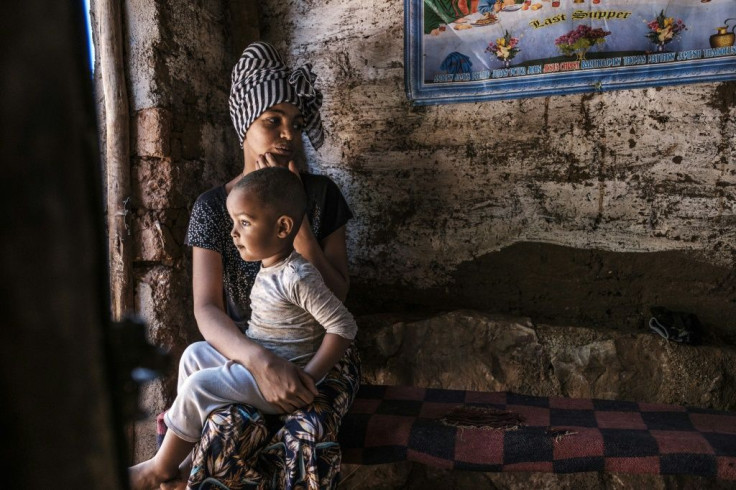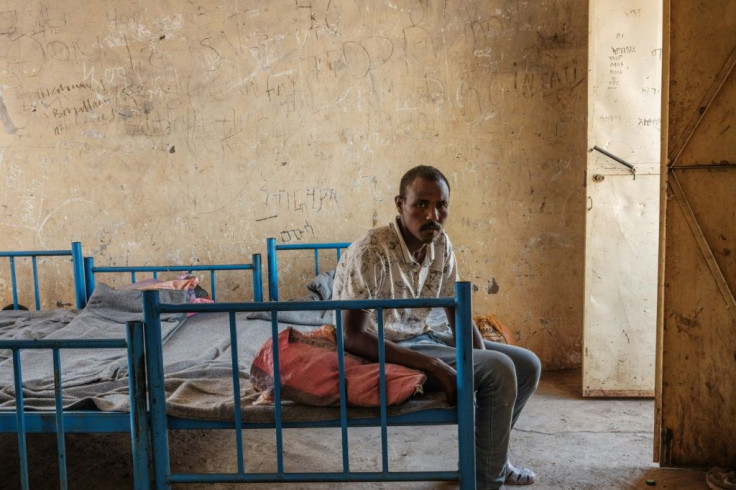27 Corpses Of Migrants 'Dumped' On Roadside In Zambia; May Have Suffocated During Trip

KEY POINTS
- Zambia police said the Ethiopian victims likely died of suffocation while they are being transported to South Africa
- Dead Ethiopian migrants were also discovered in a mass grave in Zambia's neighbor, Malawi, in October
- A migration expert said Ethiopians are fleeing their country due to the ongoing war, political instability and severe poverty
The bodies of 27 people, believed to be migrants from Ethiopia, have been left by the roadside in the Ngwerere area, north of Zambia's capital Lusaka.
Zambia police spokesperson Danny Mwale told the BBC that they likely suffocated to death while in transit.
Mwale said one survivor was found "gasping for air" and was rushed to a local hospital. The survivor's current condition is unclear.
The police spokesperson said local residents discovered the corpses Sunday morning local time.
"Our preliminary investigations indicate that a total number of 28 persons, all males aged between 20 and 38, were dumped in Meanwood Nkhosi along Chiminuka road in Ngwerere area by unknown people," Zambia police said in a statement, according to the BBC.
Based on the identification documents found on the bodies, police believe that the migrants were most likely Ethiopian nationals, Mwale said.
Authorities brought the bodies to the Zambia University Teaching Hospital mortuary.
The discovery came after 25 bodies of Ethiopian migrants were unearthed by authorities in a mass grave in Malawi in October.
Malawi police said they had gathered evidence connecting the discovered bodies to Tadikira Mafubza, the stepson of Malawi's former president, Peter Mutharika, the BBC reported.
Authorities arrested Mafubza last month after he handed himself over at police headquarters in Malawi's capital city of Lilongwe.
Police also impounded a vehicle allegedly used to transport Ethiopian migrants to South Africa.
Some reports suggested that this group had suffocated to death while being transported, and they were then buried in the forest, according to the BBC.
Kenyi Emmanuel Lukajo, associate external relations officer of the United Nations Refugee Agency (UNHCR), confirmed to German news media DW that Malawi has become a transit route for migrant trafficking. Lukajo said they registered between 200 and 400 asylum seekers coming into Malawi every month.
Lukajo added that the agency is creating awareness campaigns among migrants on the dangers of trafficking.
Pasqually Zulu, a spokesperson for Malawi's immigration department, told DW that they have a hard time stopping illegal immigration.
But human rights advocates blamed Malawi's lack of stringent surveillance systems for tracking migrants entering the country.
Dr. Girmachew Adugna of Addis Ababa's Friedrich Ebert Stiftung Flight and Migration Competence Center told DW that Ethiopians are fleeing their country due to the ongoing war, political instability and severe poverty. Internal displacement due to government policies is also driving young people to leave the country, according to Adugna.
Adugna said many Ethiopians fleeing their country wish to go to South Africa for better opportunities.

© Copyright IBTimes 2024. All rights reserved.






















